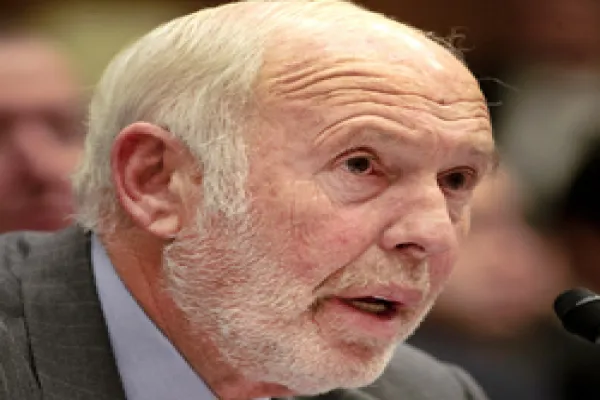Oaktree Capital Management’s Howard Marks thinks passive investing depends on active investors to work properly. And he thinks the trend isn’t going anywhere, according to his latest client memo, released late Monday.
The large shift to passive investing through index funds and ETFs will allow a select number of active managers to shine, he wrote.
Since the market had changed very little since his last missive, Marks chose to focus on broader, long-term issues in “Investing Without People.” In it, Marks discussed the rise of passive investing, quantitative investing, and what artificial intelligence means for the market.
[II Deep Dive: Howard Marks Favors Being Defensive in Aging Bull Market]
Even as many active investors are trailing the market, he argued, their knowledge, research, and probing into the companies they invest with drives passive investing. Passive investors, in effect, rely on active investors to set the prices of stocks, Marks wrote.
“The irony is that it’s active investors — so derided by the passive investing crowd – who set the prices that index investors pay for stocks and bonds, and thus who establish the market capitalizations that determine the index weightings of securities that index funds emulate,” Marks wrote in the memo.
The market is not yet to a place where index-tracking vehicles have stifled price discovery. So while a reckoning about the necessity of active investing is not here yet, it could be on its way.
“When active investing is dismissed totally and all active efforts cease, passive investing will become imprudent and opportunities for superior returns from active investing will reemerge,” Marks wrote. “At least that’s the way I see it.”
Marks also detailed the shortcomings of quantitative investing as well as its advantages. He noted that it “makes good use of the ability of computers to handle vast amounts of data and their freedom from human error,” and added that in many cases, computers do better than people when it comes to investing.
But, he cautioned, “there has to be a reason why the best quant firm — Renaissance Technologies — has returned all outside capital from its flagship Medallion Fund; if an investment approach is infinitely scalable, by definition it’s never economic to limit the capital under management.”
Marks doesn’t expect computers to completely replace investors, or even be able to run without human supervision for quite a while. “Artificial intelligence/machine learning eventually will make its way into these fields, but a good bit of time is likely to pass before it is sufficiently sophisticated and data is sufficiently available to permit computers to act autonomously,” Marks wrote.







